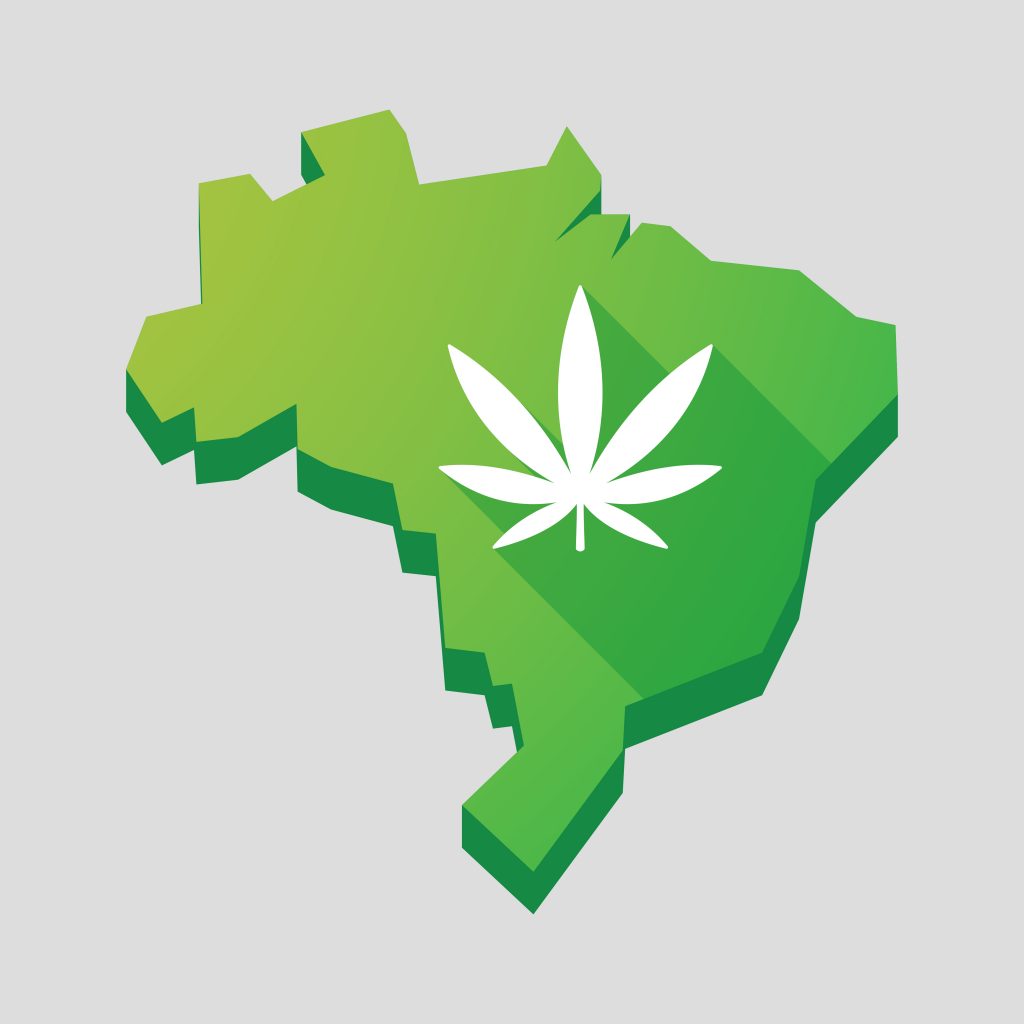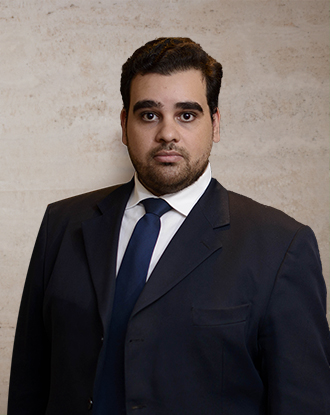“The lack of a pattern reveals that the BPTO is still learning how to deal with applications encompassing cannabis derived products in the specification or as part of the visual elements of a trademark.”
 The authorization of consumption of Cannabis derivative products in several countries has led to the rapid development of a robust industry around such products. However, Brazilian legislation is still conservative concerning the sale, production, and use of cannabis derivative products, all of which are currently prevented by Brazilian law and defined as both civil and criminal offenses.
The authorization of consumption of Cannabis derivative products in several countries has led to the rapid development of a robust industry around such products. However, Brazilian legislation is still conservative concerning the sale, production, and use of cannabis derivative products, all of which are currently prevented by Brazilian law and defined as both civil and criminal offenses.
But despite Brazil’s restrictive position concerning the permission of production and selling of cannabis-related products, the country is now taking baby steps towards the legalization of some aspects of the use and sale of cannabis products, putting the country at the center of discussions around this topic.
Perceptions are Changing
Recently, the President of the Supreme Court of Justice (SCJ), Justice Dias Toffoli, admitted a “writ of certiorari” in the Court’s appellate jurisdiction to decide a case that involves the judicial review of the decriminalization of possession of cannabis, limited to 25 grams of marijuana for citizens over 18 years. The judgment session was initially scheduled for June 5, 2019 but was postponed to November and will be a landmark case on the matter.
While the discussions over Brazilian Law seems to be moving towards a more permissive approach to the possession of drugs for personal consumption on the one hand, the penalties for the production and commerce of cannabis are still considerable (penalties can result on up to 15 years of detention plus fines). Regarding possession of drugs for personal consumption, article 28 of Brazilian Drug Law no.11.343/2006 states that the person who acquires, stores, carries or brings for personal consumption drugs without authorization or in disagreement with legal or regulatory determination shall be subject to penalties such as warnings about the effects of drugs, community services and/or attendance of educational courses.
The National Health Surveillance Agency (ANVISA) is not opposed to the use of marijuana for medical purposes. In 2015, ANVISA withdrew Cannabidiol (CBD) from a list of prohibited substances in Brazil and included it in a list of controlled substances, recognizing in an unprecedented way its therapeutic effect.
IP Protection Strategies for Cannabis
Another challenging scenario for regulation of the consumption of marijuana in Brazil is that, while export of medicine derived from cannabis is possible, owners of intellectual property assets for products derived from cannabis are still unable to protect those assets, particularly trademarks. Given the increased discussion around a possible regulation allowing consumption of cannabis-related products, this is especially problematic.
The Brazilian Patent and Trademark Office (BPTO) usually rejects trademarks containing references to cannabis and its derivative substances, on the basis on the provisions of Article 124, III of the Brazilian IP Law, which prohibits registration of signs that infringe morality and good manners, or on the basis of Article 128, §1º, which requires titleholders to be engaged in a legitimate business activity in order to be granted a trademark.
These rejections of cannabis-related trademarks based on absolute grounds have shaped the current understanding of legislators with respect to cannabis derived products being forbidden by the Brazilian law. However, the refusal of trademark applications claiming protection for cannabis-related products is not a rule in Brazil. In fact, the BPTO has granted registration for several trademarks covering medicines containing substances founded in Cannabis. THC and Canabidiol. Mevatyl®, for example, is registered in Brazil in classes 03 and 05 for identifying a medicine composed by THC and Canabidiol, indicated for the symptomatic treatment of moderate to severe spasticity related to multiple sclerosis.
The BPTO’s decision to allow the Mevatyl trademark can be justified by the fact that the company did not specifically mention cannabis in the claimed goods but, instead, “pharmaceutical and veterinary preparations; health preparations for medical purposes” in class 05. This highlights the importance of adopting effective prosecution strategies for protecting cannabis-related trademarks in Brazil.
Most trademark allowance decisions relate to marks that, such as Mevatyl, do not expressly contain any reference to weed, hemp or cannabis derived substances either on the mark or at the description of products. However, a deeper analysis on the BPTO’s database reveals granted registrations for marks such as CANABIDOL (Registration no. 907775659) and ISODIOLEX THC FREE NON GMO GLUTEN FREE HEMP OIL (Registration no. 840889844), both in class 05 covering medicines for human use – which is, therefore, aligned with the National Health Surveillance Agency (ANVISA) regulation to permit the import of cannabis derived products for medical purposes. The lack of a pattern reveals that the BPTO is still learning how to deal with applications encompassing cannabis derived products in the specification or as part of the visual elements of a trademark.
Notwithstanding the BPTO’s contradictory decisions, it is possible to conclude that registrations for trademarks covering cannabis derived products may be admissible in Brazil depending on how registration is sought. However, to avoid refusals based on morality arguments, trademark applications must be strategically filed, such as, for instance, avoiding any explicit reference to cannabis-related words in the description of goods and services as well as any depiction of marijuana designs in the registered trademark.
A Matter of Time
Despite the conservative approach of Brazil’s new president Jair Bolsonaro, the scenario for the decriminalization of marijuana possession in Brazil seems to be favorable, since three of the eleven Justices of the Supreme Court have already voted for the admissibility of possession of marijuana for personal use in a judgment session that will be continued in November 2019. The possible decriminalization would be a first step for Brazil to emerge in the future as a significant market for products derived from cannabis and a potential environment for cultivation, production and development of technologies for manufacturing of cannabis products. In the end, considering how this economic sector has been growing, the round of investments in the cannabis market segment in Brazil should be only a matter of time and companies should not miss the chance to start preparing from an intellectual property point of view in order to stand in a leading role and take advantage of this new scenario.
Image Source: Deposit Photos
Vector ID: 66081465
Copyright: jpgon

![[IPWatchdog Logo]](https://ipwatchdog.com/wp-content/themes/IPWatchdog%20-%202023/assets/images/temp/logo-small@2x.png)

![[[Advertisement]]](https://ipwatchdog.com/wp-content/uploads/2023/01/2021-Patent-Practice-on-Demand-1.png)

![[Advertisement]](https://ipwatchdog.com/wp-content/uploads/2024/04/UnitedLex-May-2-2024-sidebar-700x500-1.jpg)
![[Advertisement]](https://ipwatchdog.com/wp-content/uploads/2024/04/Artificial-Intelligence-2024-REPLAY-sidebar-700x500-corrected.jpg)
![[Advertisement]](https://ipwatchdog.com/wp-content/uploads/2024/04/Patent-Litigation-Masters-2024-sidebar-700x500-1.jpg)

![[Advertisement]](https://ipwatchdog.com/wp-content/uploads/2021/12/WEBINAR-336-x-280-px.png)
![[Advertisement]](https://ipwatchdog.com/wp-content/uploads/2021/12/2021-Patent-Practice-on-Demand-recorded-Feb-2021-336-x-280.jpg)
![[Advertisement]](https://ipwatchdog.com/wp-content/uploads/2021/12/Ad-4-The-Invent-Patent-System™.png)






Join the Discussion
One comment so far.
Suellen Camargos
December 23, 2019 01:52 pmI believe trademark prosecutions demand a much deeper analysis and strategy. In the cited precedent, the pharmaceutical companies filed applications without mentioning the goods contained cannabis, and for that reason (omission of a true fact that would render the goods illegal in Brazil) they were granted the registration. The problem relies on the fact that the modern trend is going towards invalidating registrations made in bad faith. China, this last April, amended its Trademark Laws to include that bad faith applications shall (not could) be rejected. An Advocate General for the EU Court of Justice, this last October, handed an opinion for the invalidation of a trademark because of the owner’s bad faith when filing the registration. Thus, although the author concludes “that registrations for trademarks covering cannabis derived products may be admissible in Brazil depending on how registration is sought”, I would add that special attention should be given on how this prosecution strategy is being used, because they could get a registration that in the near future could be rendered invalid.